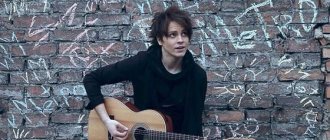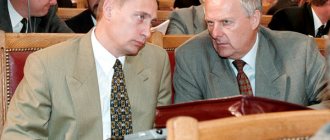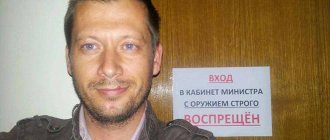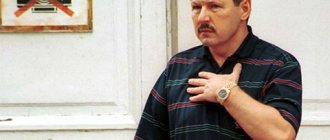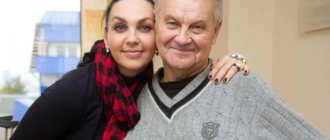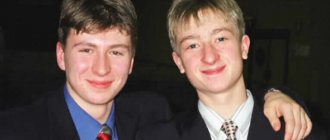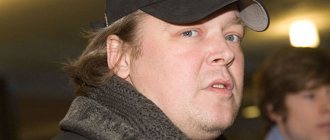Anne Jacqueline Hathaway was born on November 12, 1982 in New York. Anne's parents, lawyer Gerard Hathaway and theater actress Kate McCulley, named the girl after the wife of William Shakespeare. Anne has Irish roots, which is why her appearance is so original and expressive. Since childhood, my mother dreamed that her daughter would be an actress and contributed to this in every possible way. Before Ann went to school, the family moved to New Jersey, where the future star spent her childhood and youth. The girl was educated not like ordinary children, but according to the Montessori program, which provides for the development of the child’s individual abilities, and not the standard memorization of rules. In New Jersey, Ann graduated from high school, studied dancing and singing, and actively took part in school theater productions.
Born: November 12, 1982 (age 37), Brooklyn, New York, USA Height: 173 cm Married to: Adam Shulman (since 2012) Parents: Kate McCauley Hathaway
Anne Hathaway - biography and personal life
Anne Hathaway's family was very religious and adhered to all traditions. The girl grew up in a strong, healthy atmosphere. She even dreamed of becoming a nun, but at the age of fifteen she abandoned her dream. The fact is that Ann's brother turned out to be homosexual, and she decided that she could not serve a religion that opposed sexual minorities.
The first performance on the big theater stage took place in the play “Jane Eyre” when the girl was 10 years old. After leaving school, Anne decided that she should pursue a career as a singer in theatrical musicals, but she was not accepted. The fact is that Hathaway was too tall for children's roles, but too young to play adults. The refusal greatly affected the actress; she decided that the road to the stage was closed for her forever.
Anne Hathaway had a strong, strong-willed character, which led her to cinema. Having abandoned the theater, she came to a screen test for the series “Be Yourself” and successfully passed the casting. The series was not very rated, but the girl was noticed by film critics. The famous director Garry Marshall invited Anne to play the main role in the wonderful fairy-tale film “The Princess Diary”. He admired the beauty of the young actress and compared her with world stars. He wasn't wrong. After the film was released on television, Anne became a celebrity.
Soon Anne received a cameo role in “Brokeback Mountain,” and later played the role of the main character’s sister in the famous film “The Devil Wears Prada.” Later there were roles in the drama “Jane Austen”, “Passengers”, etc.
Anne Hathaway received the main awards in the film industry for her role in the film “Les Miserables.” She was awarded a Golden Globe and an Oscar.
Incredible novel
Adam Shulman first met Anne Hathaway at a party of mutual friends. He immediately noticed a girl of unusual beauty, but with a sad look. It was not possible to communicate, but upon arriving home the guy found a lot of information about the actress on social networks. He was especially hurt by the situation with her ex-boyfriend.
Ann, in turn, also noticed Adam, but there could be no talk of any relationship, since he was at a party with his girlfriend. A new meeting took place a couple of weeks later. The young people realized that a real feeling had overtaken them. Adam Shulman quickly ended his previous relationship and was ready to plunge into a new whirlpool of love and passion.
View gallery
Anne Hathaway personal life
The first stormy romance, which took place in front of journalists and fans, was with major businessman Raffaello Folieri. The relationship lasted about five years, but ended in a huge scandal. Folieri was accused of stealing $50 million from Catholic Charities, which was headed by Anne Hathaway. During the trial, the actress was a witness and was very worried about this. There were no children in the marriage of Raffaello Folieri and Anne Hathaway.
Three years after the divorce, Anne reciprocated Adam Shulman's advances. In 2012 they got married. The wedding was quiet and calm, in the presence of only the closest family and friends. Many have noticed that Anne Hathaway's husband looks like Shakespeare, which means this is a match made in heaven. The movie star is not often seen at parties and social events; Anne Hathaway spends most of her free time with her husband and family. The couple practically does not advertise their personal lives and hides from journalists in every possible way.
In March 2020, Anne Hathaway gave birth to a child. But the paparazzi found out about it only three weeks later. The first-born was named Jonathan Rosebanks. The couple was looking forward to this significant event. Previously, information appeared in the press that the couple could not conceive a child; they were even planning to take the baby from the orphanage.
In the summer of 2020, the press learned about the actress’s second pregnancy. It is unknown when Anne Hathaway gave birth to her second child, and the gender and name of the baby are also unknown. But on December 8, paparazzi spotted the couple on a walk with their newborn.
Now Anne Hathaway continues to lead a social life with her husband and two children. She is starring in films that will be released in theaters soon. We are waiting for great news from the film star and wish this couple happiness.
Why Anne Hathaway felt unhappy after winning an Oscar
The wedding took place in the small town of Big Sur, where Ann's country estate was located. It was an unforgettable day! Paradise nature of California, only close friends and relatives nearby. The bride wears an ivory Valentino dress with a soft pink train. In a word, heaven on earth!..
Anne Hathaway and Adam Shulman, 2020
And a year and a half later, the Internet exploded with a sensation: “The marriage of Anne Hathaway and Adam Shulman has cracked. The couple is on the verge of divorce! Newspapers added to the rumors and put forward their own versions of what was happening. Well, in fact, if everything was going smoothly for the couple, would the actress appear in public without her husband? So she also came to the Costume Institute ball alone.
In addition, Anne Hathaway's behavior seems strange lately: she is giving away her things to the poor and is even thinking about selling her mansion in Los Angeles and buying something more modest in return. They say that famous personalities should live without excessive luxury and learn humility. So, maybe this is the reason for the breakdown of the marriage?
Ann refused to comment to reporters. And what could she say if she herself didn’t really understand what was happening. She and Adam were in some kind of abnormal state throughout the first year of their married life. But while we were dating (and it lasted three years), everything was truly magical. It was only when they got married that all sorts of misunderstandings began. Maybe I should have lived without marital ties?
“It’s okay, if people love each other and are friends wholeheartedly, they will certainly find a way to reconciliation,” Ann’s mother consoled her. And Kate McCulley was right. Soon the couple decided that they would try to produce the film “Once Upon a Time in New York” together. And then Ann decided to perform in her usual role as an actress and begged the director for the main role. After all the comedies, she really wanted to play in a drama, and even a musical one.
2020
Oddly enough, their first “pancake” with Adam did not turn out lumpy, but was quite a success. It's funny to say that the most difficult part was the love scenes in the film. Hathaway's partner, aspiring actor Johnny Flynn , was terribly embarrassed. Still, making love to the producer’s wife in front of his eyes is not entirely comfortable. It’s good that when the explicit scenes were filmed, Adam was not on set. Otherwise, poor Flynn would have completely turned to stone.
In a word, cooperation benefited the spouses. And soon Adam Shulman admitted to reporters: “The biggest surprise in marriage was that I was falling in love with my wife more and more.” And now the only thing they lack for complete harmony is a child.
Childhood and youth
The young man is not as famous as his star wife. There are few details about his early life.
Adam Shulman in his youth
Adam Banks Shulman was born on April 2, 1981 in New York. He was the long-awaited and only child of his parents. Mother Jacqueline and father Mark tried to give the heir an excellent education.
There are three universities behind the young man. After school, he went to gnaw on the granite of science at Brown University, where he received a bachelor's degree. Then he entered the New York University of the Arts, where he took short acting lessons. The session was held at the Eugene O'Neill National Theater Center.
BookshelfPolitical scientist Ekaterina Shulman about her favorite books
It happens that a person read some text and his life changed dramatically. For me, the beginning of being as a person was rather the very fact of reading independently. I, like more or less all children of intellectuals, was taught to read at the age of four, and since then, in general, I haven’t done much else. We all belong to a class that earns its living by reading and writing.
Since then there have been several not so much books as corpora of texts that have truly influenced the way of thinking. Firstly, Soviet popular science literature. There was a two-volume encyclopedia “What is it? Who it?". There was a book by Ilyin, who is actually Marshak - the brother of Samuil Marshak, “How a Man Became a Giant.” This is a book about scientific and technological progress, about the development of human thought, science and technology since primitive times, and it ends with the burning of Giordano Bruno. There was the indispensable Kuhn with “Legends and Myths of Ancient Greece.” There was even Perelman with “Entertaining Physics” and a ten-volume “Children’s Encyclopedia”, little yellow. These are the fruits of the bright era of the sixties, progressive technicalism and the cult of science, which the Soviet government encouraged at that time.
I read a lot of literature about animals as a child. I had the book “Entertaining Zoology”. There was a translated four-volume encyclopedia “The Joy of Knowledge” - with luxurious illustrations, maps and diagrams of how different ecosystems work. Even if these sciences do not mean anything to you later, this very way of comprehending reality, a benevolent interest in it and, at the same time, rationality have something very charming about it. From this comes respect for science, respect for the human mind, faith in progress and the belief that reality is knowable. So I'm an atheist, not an agnostic.
I can’t name any book that would actually make me a political scientist. Interest in politics was natural when I was growing up. It was a now forgotten era - the late eighties and nineties, when everyone subscribed to a lot of newspapers and magazines, watched political television programs, which then were not at all what they are now. I remember the magazine “Ogonyok”, the thick magazines “Friendship of Peoples” and “Znamya”, the young early “Kommersant” even before Boris Berezovsky bought it - and I remember what all this generally meant for those people who read it.
To avoid the impression that I was educated by perestroika journalism, it is necessary to mention books that teach a systemic, procedural view of historical and political processes. Evgeniy Tarle became a very important author for me. On the letter it won’t matter how his last name is pronounced, but people who knew him later told me that he was actually Tarle. At home there were his books about Napoleon, Talleyrand and the War of 1812. There was also Manfred’s book “Napoleon Bonaparte,” but it was noticeably a lower class. Tarle's Talleyrand particularly impressed me. There was also a wonderful book about Napoleon, but as far as the conflict with Russia was concerned, even at a young age I could see the pressure of Soviet ideology. Talleyrand didn’t particularly bother anyone, he was clearly a negative character, there was no need to cultivate patriotism - this was a book not so much about a diplomat as about an internal political intriguer. Of course, all this was based on the Marxist view of historical formations and their changes, but at the same time it was terribly charming both in content and stylistically.
Then, when I was older, I began to buy other books by Tarle, which were not so well known and not so often published: for example, he had an excellent work on the colonial wars, more precisely, on the great geographical discoveries and their consequences for European countries, and a book about the First World War, Europe in the Age of Imperialism. Already being an independent working girl in Moscow, I bought a twelve-volume collection of Tarle’s works in the antique department of the Moscow store on Tverskaya for what was then terrible money for me. It was even more difficult to drag him home from the store on the subway. I am very glad that I did it then - now there is this blue monumental collection of works by the author, to whom I am very indebted.
My second favorite historian is Edward Gibbon. The Decline and Fall of the Roman Empire is extremely difficult to read to the end, and I myself got stuck on Justinian, but his style and logic are irresistibly charming. By the way, much later I realized that stylistically it was he, and not any of the previous novelists, who was Jane Austen’s real father.
I have always been somewhat disdainful of people who say that “with age” they began to read less fiction, because they are drawn to everything that is authentic and real. A literary text is a complex text, and with any kind of text memoirs it will always be simpler: no matter how well they are written, they are still characterized by a linear composition. It's always a form of telling a real-life story in a more intellectual form. And fiction is the highest manifestation of the human spirit, of course. She is our mother and nurse, and our support all the days of our lives. However, when you look at your reading lists, you discover that even if you don’t take professional scientific literature and megabytes of bills and explanatory notes to them, you read an extremely large number of memoirs and historical non-fiction. I’ll name my old and new favorites: De Retz, Saint-Simon, La Rochefoucauld, Nancy Mitford about Louis XIV, Voltaire and Madame de Pompadour (about Frederick the Great, I think her book didn’t turn out very well), Samuel Pepys about himself, his beloved, Walter Scott about Scottish history, Churchill about Great-Grandfather Marlborough, Peter Ackroyd about everything (he has a good biography of Shakespeare, a new volume of “History of England” has recently arrived).
Well, among fiction, the author of my soul is, of course, Nabokov. Here it was a significant transformational shock, but not one-time, but gradual. This is the author who best suits my emotional and intellectual needs. Nothing has changed: as long as I’ve read it, since about 1993, I continue to read it. The latest incredible gift is Alexander Dolinin’s commentary on “The Gift,” released at the end of 2020. I had the good fortune to receive this major work as one of the first, through an acquaintance, and even recorded an interview with the author when he came here. I read the entire volume very quickly: it seems thick, overwhelming, and when it ends, I want it to be even thicker. If “The Gift” itself is pure joy, then Dolinin’s commentary is distilled joy. You just read it and you envy yourself.
I don't like a lot of people that others like - and that's not surprising. I don’t like Dostoevsky (and his diluted version - Rozanov), I absolutely don’t see the artistic component in him, but I see opportunism, commercial writing and a violent emotional impact on the reader, which also usually irritates me. It is known that in Russia Tolstoy and Dostoevsky are two parties (apparently, due to the absence of political parties, people are segregated in this way). And I, of course, belong to the party of Tolstoy - certainly not to the party of Dostoevsky. And the well-known dichotomy “tea, dog, Pasternak” vs “coffee, cat, Mandelstam” in my version should sound like “tea, children, Shakespeare.” Although Mandelstam, of course, is a great poet.
Who else don't I love? Well, in order to offend everyone at once like this, let’s offend everyone! I am always alarmed when a person praises the Strugatsky brothers: if these are his favorite authors, I will suspect him of being, let’s say, non-humanitarian, a representative of the Soviet engineering and technical intelligentsia. These are good people, but they do not understand what literature is. Because this is very Soviet literature. And Soviet literature is the work of prisoners. They are not to blame for this, they are the least to blame for this. They achieve outstanding results in their carving of a glass and making an artistic object out of a spoon handle - but still it all smells like a prison. That’s why it’s painful for me to read Soviet writers: their philosophy seems superficial to me, their artistic skill is questionable. I also treat the novel “Monday Begins on Saturday” with some tenderness, because it is a description of a certain narrow, specific social stratum and its way of life, and this has its own charm. And everything else - in my opinion, this is deep philosophy in small places. And I repeat once again, I am not groping for artistic fabric there.
And there are things that are considered overpraised, but are not. "The Master and Margarita" is a great Russian novel. Bulgakov is generally a very significant author, both in himself and as the heir to a whole large layer of Russian prose, about which we have a vague idea, because the Soviet government cut it all down, leaving only the permitted pillars with the heads of the classics of the school canon sticking out. For some reason I also love “Theatrical Romance,” which seems strange to me: it’s not that I’m indifferent to the theater, but I don’t even understand why it exists. Few things make me so sad as stories about actors, theatrical tales, and that’s all: I don’t understand why they should act out on stage something that can be easily read in letters, and why all these people even do what they do. But “Theatrical Romance” really resonates with me.
And second: Ilf and Petrov, compromised by excessive quotation, are in fact also extremely great writers. Nabokov appreciated them, called them “a two-pronged genius” (he was generally attentive to Soviet literature). “The Golden Calf” is a wonderful Russian novel, and “12 Chairs” too, although a little weaker. Therefore, when they say that it is overpraised, no, it really is not. These are genuine values that will endure the envious distance of centuries.
